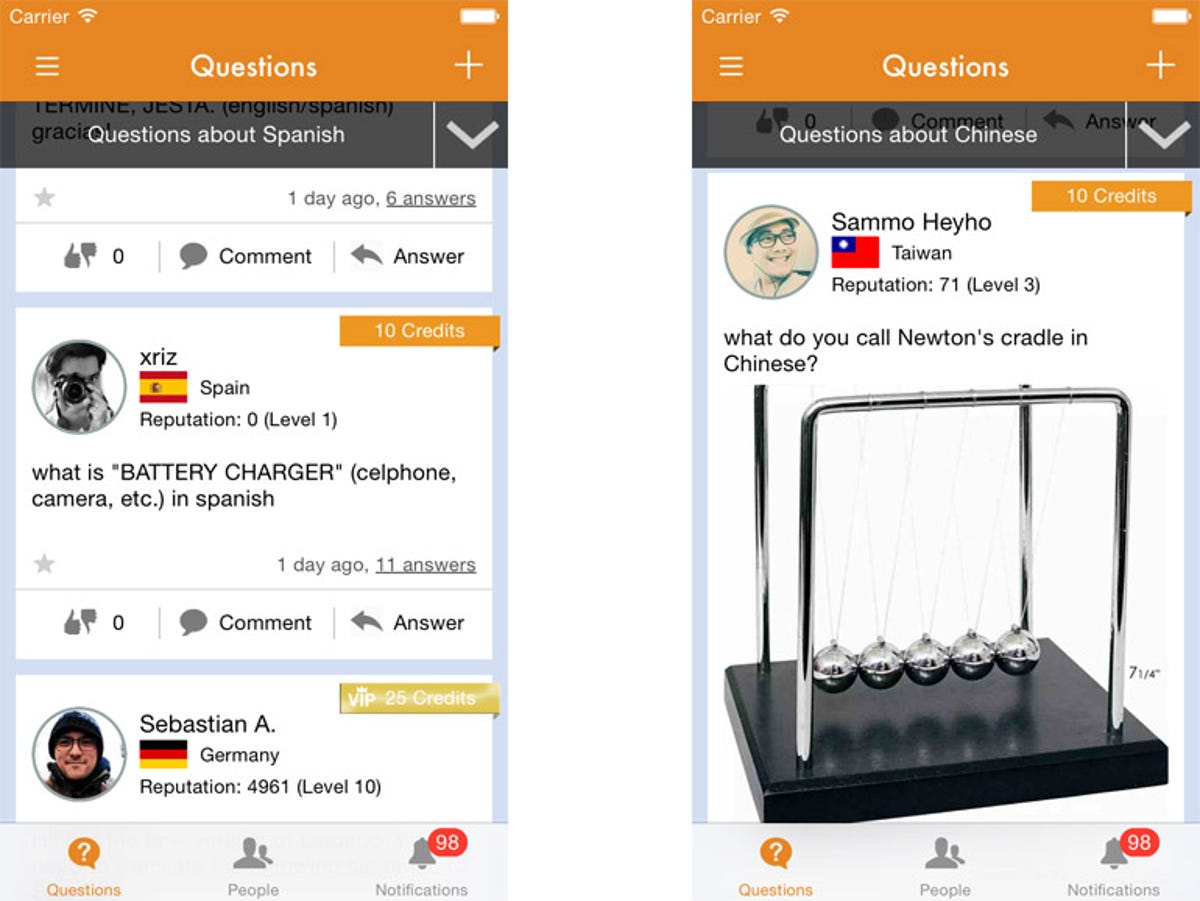
Linqapp
Linqapp, a social translation app that connects translators and native speakers with people in need of a quick translation, is making its debut this week for Apple’s iOS.
The app aims to match users in need of translation with Linqapp users who speak the language to provide a variety of answers. The app sends a push notification to native speakers when translation is needed, after which users can expect a reply to their translation questions in three minutes, the app’s creators say.
Web-based translation services like Google Translate are criticised as lacking the human touch, missing pop-cultural references, turns of phrase and historical proverbs that may affect a translation’s accuracy. They are also frequently limited to text-only conversions. Linqapp touts its “human-powered” translations as a way to overcome the limitations of computer-based language tools.
Linqapp lets users upload audio clippings or photos, making it possible to have someone translate the menu from the fancy restaurant you’re at, or to send instructions for preparing certain dishes when the recipe doesn’t come in a language you can comprehend. Linqapp allows for multiple interpretations of the same signs or audio clip for users who are faced with unfamiliar information.


Linqapp
You can also choose to message other users directly, which is handy for finding a language partner to practice with. The current iteration of the iOS app attempts to streamline its interface by allowing users to opt for having only language questions to deal with, or to find someone who speaks the language you want to learn for practice.
The app’s most popular languages are English, Spanish, French, Chinese, German, Italian and Portuguese, said Linqapp Marketing Manager Shannon Zimardo, mirroring the most popular languages being learned around the globe. The app sees a total of 25,000 active users across 79 native languages.
Frequent and reliable contributors are rewarded when other users send points to their profile, which in turn elevates their reputation as reliable translators.
Related stories
- Duolingo for Android (Review)
- Skype Translator adds Mandarin and Italian to its repertoire
- Get quick translations on websites with Google’s Translate extension
Other language apps such as Duolingo let users learn the language but not seek assistance for translation. Word Lens melds augmented reality and translation in real-time, but it’s powered by Google, which raises concerns of accuracy due to its automated approach. Linqapp, on the other hand, aims to help users understand the nuances in languages where daily speech or popular sayings tend to contain abstract or figurative meanings.
One People, the startup behind Linqapp, is based in Taipei, the capital of Taiwan. It has been self-funded since its establishment in 2012. Founded by Sebastian Ang, who started the app due to his linguistic struggles as a German-native living in Taiwan, Linqapp is the 11-man team’s first major release. The free app was already available for Google’s Android operating system through the Google Play store.
The startup is also in the midst of developing a separate, traveller-friendly version of the app.




